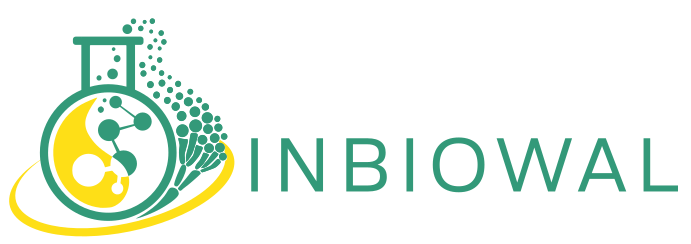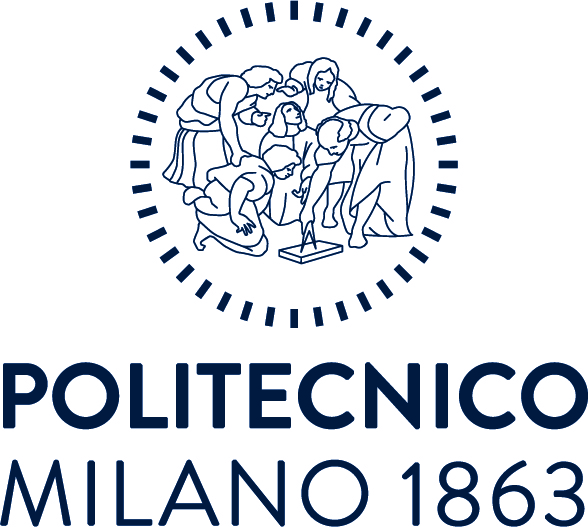POLIMI: Driving Innovation in Biocatalysis and Waste Valorization
Politecnico di Milano (POLIMI), one of Europe’s most prestigious technical universities, plays a vital role in the INBIOWAL project. With a strong focus on interdisciplinary research and cutting-edge technologies, POLIMI leads advancements in biocatalytic transformations of phenolic compounds, contributing significantly to the project’s mission of waste valorization.
Role in INBIOWAL
POLIMI spearheads the research on biocatalytic transformations of phenolic compounds, a key area of the project’s scientific focus. The university’s research efforts include:
- Developing enzymatic processes to convert phenolic by-products from the edible oil industry into high-value antioxidant, antimicrobial, and anti-inflammatory compounds.
- Exploring biocatalytic techniques for sustainable and efficient transformations, aligning with green chemistry principles.
- Providing expertise in process optimization and scaling up laboratory methods for industrial applications.
By leveraging its expertise, POLIMI ensures that research outputs are not only innovative but also applicable to real-world industries such as food, cosmetics, and pharmaceuticals.
Research Excellence and Achievements

Institutional Leadership
- Ranked as one of Europe’s leading technical universities, POLIMI is globally recognized for its excellence in engineering, chemistry, and biotechnology.
- Notable placements in the QS World University Rankings and Shanghai Academic Ranking in the fields of chemical and biochemical engineering.

Pioneering Contributions in Biocatalysis
- POLIMI has developed advanced biocatalytic processes for enzymatic esterification, amino acid synthesis, and phenolic compound transformation.
- Innovations include the creation of enzyme-driven processes for producing bioactive compounds with applications in food preservation, pharmaceuticals, and cosmetics.

Pioneering Contributions in Biocatalysis
- The university’s research emphasizes sustainable bioprocesses, replacing chemical-intensive methods with environmentally friendly alternatives.
- POLIMI has been instrumental in integrating green technologies into industrial workflows, reducing environmental impact.

Collaborative Excellence
- Strong partnerships with industry leaders and academic institutions worldwide have positioned POLIMI as a hub for interdisciplinary innovation.
- Previous collaborative projects include Horizon Europe and Horizon 2020 initiatives, focusing on sustainability and resource optimization.
Key Research Contributions in INBIOWAL
POLIMI’s research under INBIOWAL centers on the following areas:
- Biocatalytic Esterification of Phenolic Compounds:
- Using lipases to esterify phenolic acids like p-coumaric, caffeic, and ferulic acids with aliphatic alcohols, producing antioxidant compounds.
- Optimization of enzyme immobilization to enhance reaction efficiency and enable continuous processing in flow reactors.
- Synthesis of Alpha-Amino Acids:
- Developing novel methods for producing unnatural alpha-amino acids through enzyme-catalyzed reactions, with applications in pharmaceuticals and functional foods.
- Employing aromatic amino acid ammonialyase (AALs) to add ammonia to phenolic precursors.
- Fungal Biotransformations:
- Utilizing filamentous fungi to decarboxylate hydroxycinnamic acids, producing vinylphenols with bioactive properties such as antimicrobial and anti-inflammatory effects.
Infrastructure and Expertise
- State-of-the-Art Facilities:
- POLIMI houses advanced laboratories equipped with continuous-flow reactors, high-throughput screening platforms, and analytical tools for enzymatic research.
- Dedicated facilities for testing and scaling up biocatalytic processes ensure that research transitions seamlessly from laboratory to industry.
- Expert Faculty and Research Teams:
- POLIMI’s Department of Chemistry, Materials, and Chemical Engineering supports INBIOWAL with interdisciplinary expertise in enzyme technology, reaction engineering, and process optimization.
- Track Record in High-Impact Research:
- Over 500 publications in the past five years, with numerous studies focusing on biocatalysis and green chemistry.
- Contributions to landmark projects in enzyme engineering and sustainable bioprocess development.
Engagement with Industry
POLIMI’s commitment to bridging academic research with industrial applications is a cornerstone of its involvement in INBIOWAL:
- Academia-to-Business (A2B) Activities: Hosting workshops and events to connect researchers with industrial stakeholders, fostering partnerships for technology adoption.
- Tailored Solutions for Industry: Developing scalable methods for producing bioactive compounds, aligning with market needs in food preservation, cosmetics, and pharmaceuticals.
- Technology Transfer: Collaborating with companies to integrate enzymatic processes into industrial workflows, reducing reliance on chemical-intensive methods.
Contribution to BIOREF4FUTURE
POLIMI is actively involved in the establishment of BIOREF4FUTURE, the Center of Excellence for waste valorization. The university’s role includes:
- Providing technical expertise in scaling up biocatalytic processes for industrial applications.
- Collaborating with industry partners to commercialize research outputs.
- Supporting the center’s mission to act as a hub for innovation, bridging academic and industrial efforts.
Global Collaboration and Training
POLIMI’s involvement in INBIOWAL extends to nurturing the next generation of scientists:
- Mobility Programs: Hosting long-term internships and workshops for PhD students and researchers from partner institutions, enhancing knowledge transfer.
- International Networks: Strengthening global collaboration through partnerships with institutions such as UPWr, SCRR, and UQ.

